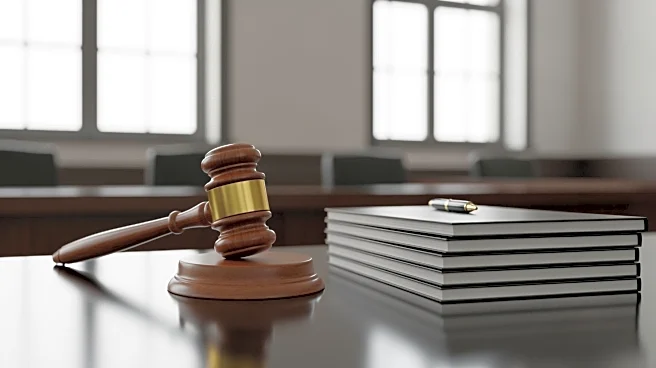What's Happening?
The Delhi High Court has quashed a criminal case against Gautam Gambhir, the head coach of the Indian cricket team, his foundation, and family members. The case involved allegations of illegally stocking
and distributing COVID-19 drugs during the pandemic. Justice Neena Bansal Krishna delivered the order, which nullified the criminal complaint. The complaint was initially filed by the Delhi government's Drug Control Department against Gambhir, his foundation, and family members, including his wife and mother, under the Drugs and Cosmetics Act. The charges were related to the unauthorized sale and distribution of drugs, which could have led to imprisonment and fines. The high court had previously stayed the trial court proceedings and sought a response from the Delhi drug control authority. The prosecution argued that the drugs were distributed without a valid license, but the defense maintained that the drugs were not sold.
Why It's Important?
This decision is significant as it highlights the legal complexities surrounding the distribution of essential drugs during a public health crisis. The case against Gambhir and his foundation underscores the challenges faced by individuals and organizations attempting to provide aid during emergencies, while navigating regulatory frameworks. The ruling may influence how similar cases are handled in the future, potentially affecting public policy on emergency drug distribution. It also reflects on the balance between regulatory compliance and humanitarian efforts, raising questions about the flexibility of legal systems in times of crisis. The outcome could impact public trust in both governmental and non-governmental responses to health emergencies.
What's Next?
Following the court's decision, it is likely that there will be discussions on the need for clearer guidelines and regulations regarding the distribution of medical supplies during emergencies. Stakeholders, including policymakers and legal experts, may advocate for reforms to ensure that aid efforts are not hindered by legal challenges. The case may also prompt other organizations involved in similar activities to review their compliance with existing laws. Additionally, the Delhi government's Drug Control Department might consider revising its approach to enforcement in light of the court's ruling.








